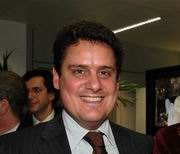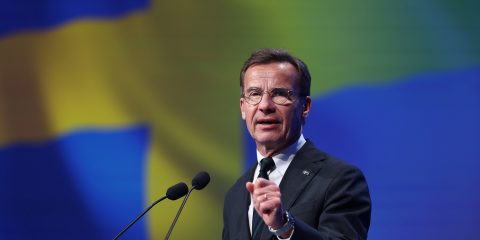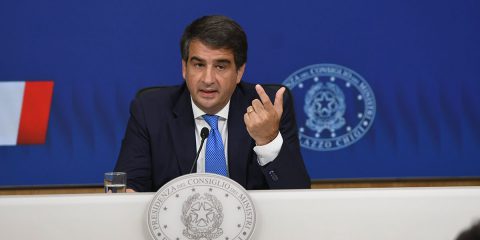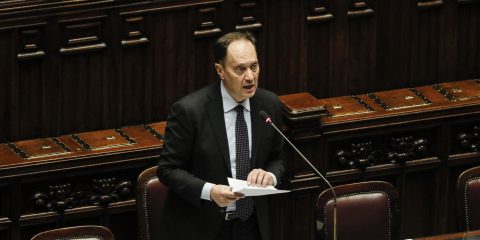Unione Europea

È in corso oggi a Bruxelles il CEO summit ‘Towards a Common Goal: Achieving a Sustainable Internet Model’, ospitato da ETNO e dal Financial Times e di cui Key4Biz è media partner. L’evento si tiene alla presenza del Commissario Ue per l’Agenda Digitale Neelie Kroes e di oltre 30 CEO delle Tlc europee e mondiali.Pubblichiamo di seguito l’intervento di Luigi Gambardella, Executive Board Chairman di ETNO.
- Commissioner, colleagues, ladies and gentlemen. Good morning.
- First of all, I would like to welcome you to this second Digital Agenda CEO Summit organised by ETNO and the Financial Times. I would like to thank all our distinguished speakers today. Let me thank in particular Commissioner Neelie Kroes. We are also honoured to have with us today the Brazilian Minister for Communications, Mr Paolo Bernardo Silva and the US Ambassador to the EU, Mr William Kennard.
- This summit is now more than just a landmark event on the Brussels telecoms calendar. This summit has become the meeting place for the leading players in the ICT industry, who are all committed to the success of the European Digital Agenda.
- Today, industry players from all segments of the value chain will not only be able to exchange their experiences and voice their concerns regarding the evolution of the industry, but also to brainstorm together on how to deal effectively with the many challenges facing our sector in these troubled times.
- Before handing the floor over to our distinguished speakers, let me just address some points on behalf of the ETNO members.
- As business leaders, we like to bring good news and announce that we have outperformed our results of previous years. Today however we need to admit that Europe is facing the most serious economic and financial crisis in decades. Growth is not something that comes by itself. We all need to make a contribution in order to turn the tide. Our sector, as highlighted in the Commission EU2020 and the Digital Agenda, has the potential to drive growth and increase Europe’s competitiveness.
- A few days ago, a new study revealed that increased investment in ICT in all sectors of the economy would add up to 760 billion to the GDP of the EU. There is here a huge potential for our sector to be in the driving seat of competitiveness and growth. On behalf of the association which I represent I am glad to confirm today that the telecoms industry will fully play its role in the process, if it is given the right framework.
- A clear framework is indispensable because our industry is confronted with significant new developments and uncertainties.
o Consumer habits are changing. The success of over-the-top applications and the huge consumer take-up of new mobile devices are generating an impressive data traffic increase, requiring massive new investments that are not in proportion to the additional revenues that network operators derive from this evolution;
o Our traditional business – fixed and mobile voice telephony – is steadily declining, leading to a negative revenue growth for the sector and consequently a drop in investment;
- To meet these challenges, our industry is going through a major transformation. We are all looking to new business models which will allow for the monetizing of traffic growth while responding to demand for IT-enabled applications and services.
- The industry is committed to delivering on the ambitious objectives set by the European Commission and offering fast internet at 100 MBit/s to at least 50% of European citizens. We should however be honest. It will not be possible to deliver ultra-fast internet for the price of the current 4 Mbit connections. This is a plain business fact. In order to ensure the take-up of the ultra-fast internet, no pricing formulas should be excluded. It should for example be allowed to combine attractive connections charges encouraging the user to go for ultra-fast internet, with a contribution from the new services that the new networks make possible.
- Let us be optimistic. For our industry and for the market, it can be a win-win situation. By delivering faster networks and new services we will help to increase productivity and to create growth and jobs across the economy. As a condition, a fair share in this growth – i.e. an appropriate return on investment – must be there for those making a huge and risky capital investment.
However, in the current framework, no such assurance exist and this is holding everything up at a time when Europe can least afford to become less competitive.
- Our sector needs sufficient flexibility in order to develop new business models and adapt to new demand. Flexibility is at the heart of the liberalization of the telecoms sector in Europe, which is a major success story of the European Commission and of you Commissioner Kroes. Flexibility implies that regulation should not be the rule, but the exception, an instrument of last – not first – resort.
- Network operators are increasingly in competition at retail level with over-the-top applications and services which are not subject to the same constraints.
- We have today the opportunity to share our views at the highest level in the European Union on how to ensure that EU policy takes into account the need to provide our members with the margin of manoeuvre needed to tackle the challenges that they are facing:
- First of all, we have to address the issue of the sustainability of the current economic model of the Internet. As highlighted by new research by the London School of Economics, which has been presented here today, policy makers should encourage the development of new quality-based offers for operators that would benefit consumers and lead to new revenue streams. Any additional regulation which would prevent such business models would further hamper the operators’ ability to invest.
- In this context, the recent Dutch law on net Neutrality is a major concern. This is a clear example of why we need more Europe! We need to avoid a situation in which member states, in implementing the provisions of the new EU regulatory framework, impose limitations which go beyond the EU rules and thereby create a fragmented Single Market for telecoms.
- Secondly, if the EU wants to meet its ambitious broadband targets – to which ETNO members (let me repeat) are very much committed -the Commission should send a strong political signal that it has, for its part, understood the factors and conditions which determine business-investment decisions and thereby reassure markets on the long-term value of the European telecoms sector. ETNO welcomes the Commission’s decision to allocate 9.1 billion euro in the multi-annual framework for new networks through its Connecting Europe Facility. This is an important step towards bridging the digital divide. But the greater part of network deployment will be driven by the private sector. And the private sector only invests when the investor is convinced by an attractive business case. Investing to become operators of fibre-optic highways without the prospect of a fair share in the revenues generated by the traffic on these highways, is not an attractive, or even a realistic, business proposition.
Commissioner Kroes,
- We are counting on you to reassure markets as to the long-term value of the European telecoms sector. The forthcoming Commission guidance on regulated wholesale prices can play an important role by ensuring the stability of the value of fixed networks in Europe. To price current copper networks below their economic value would penalize those operators that have invested in their own networks and critically reduce investment incentives for the future. It would be very dangerous if rules were twisted to obtain specific results, for example to adapt the cost methodology just in order to achieve short-term objectives. For new fibre networks, I would even say that intrusive remedies like cost-orientation obligations are the best way to discourage investments in the current, gloomy economic context.
- Since the imposition of roaming regulations, business analysts have been scrutinizing more than ever the possible impact of EU rules on our income. They will notice immediately whether the regulatory approach is in step with the rapid technological and market changes that we are now experiencing or, on the contrary, is constraining the ability of business to face challenges and adapt their business models accordingly. The valuation of our undertakings is seriously affected by the quality of the rule-making.
- Finally, shouldn’t the broader picture be taken into account when considering how best to regulate the sector? In the light of the emergence of strong competitors on other levels of the value chain and the success of other platforms, such as cable, in providing broadband services, wouldn’t a further deregulation of the sector be the strongest signal to convince and encourage investors?
- Europe must not lag behind. We need to remove regulatory obstacles and barriers in order to create a truly single market for innovative online services in fields such as e-health, smart grids, mobile payments and content, to name a few.
- TV is a clear example where innovation and industrial cooperation can be beneficial for Europe. By encouraging the migration of TV from terrestrial to high-speed broadband platforms, including fibre or mobile/satellite networks where fibre networks would not be available, we would create huge demand for new high speed broadband and stimulate investment. In addition, this would free up more spectrum which is much needed for mobile and wireless broadband networks, and would further help to bridge the digital divide.
- All of these considerations demonstrate that our industry needs to speak with a strong single voice. In view of the tremendous investments which are required to deliver the digital agenda objectives, critical mass is required. Further consolidation of the industry is unavoidable. The minor fights between incumbents and the cries of newer entrants over a few eurocents of access charges belong to the past. Today incumbents and entrants have a common interest in deploying the new networks necessary to deliver the services that the consumer expects from us. This new context is also reflected in the growing number of entrants joining ETNO, which is reshaping itself so that it will soon represent all industry stakeholders.
- Commissioner,
- We believe that you have the will and the necessary tools to take the right decisions. An important step in the right direction has been the principles elaborated by the Round Table that you have set up with the CEOs on how to achieve the 2020 Digital Agenda, an initiative that we are keen to follow up. As you rightly noted following your recent visit to the US, Europe has all the elements in place to have its own Silicon Valley but yet something is missing. On this we need to open up a strategic discussion, and we agree with you that we need to work urgently to create an innovation eco-system for the Internet, taking into account its cross-border nature, which requires a global approach. We need to send the right signal to markets that we are the future and that today’s investments will put us back again in the driving seat of competitiveness.
- Thank you all for your attention. I wish you all a day of fruitful discussions and enriching contacts, and I would like now to invite Commissioner Kroes to take the floor.












